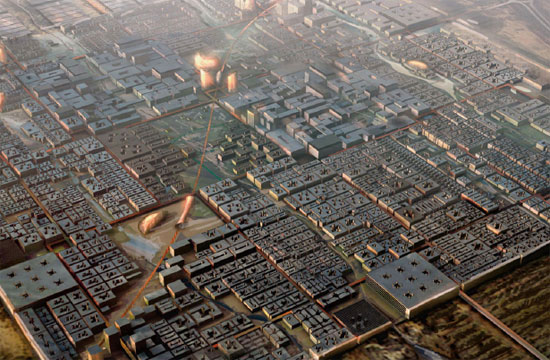
The United Arab Emirates, home for around 5 million people, wants to build the world's first zero-carbon city called Masdar City.
In Masdar City cars will be banned. A light rail system will serve the residents inside the city as well as taking them to nearby cities. Waste water will be reused, all garbage will be recycled and organic food will be locally grown.
The water will be provided through a solar-powered desalination plant. Even though the developers of Masdar City haven't said any exact percentage they plan to power most of the city by solar power.
Masdar City, which will stretch out 3.5 miles and will have a wall built around the city. The wall is there to diminish the heat carried in from southerly desert winds, but also the noise from the airplanes at the nearby Abu Dhabi International airport.
It all sounds good, but this Gulf desert nation has a lot to prove.
For example, the United Arab Emirates has the world's largest ecological footprint per capita, 11.9 global hectares per person. You can compare this to USA who has the second-worst ecological footprint, 9.6 hectares per person. Compare this to the global average which is 2.2 hectares a person and you clearly see the problem.
The country also wins (or loose depending on how you see it) the per capita carbon footprint. In the United Arab Emirates it takes 9.06 global hectares of land to take up each person's carbon dioxide emissions, in a year. The US carbon footprint is 5,66 and the world average is 1.7.

After a deal with the Emirates government, the WWF will be monitoring the construction and the finished city to be sure it lives up to it green claims.
The city is expected to cost $22 billion to construct and is scheduled to inaugurate in 2015.

Recommended Comments
Join the conversation
You can post now and register later. If you have an account, sign in now to post with your account.